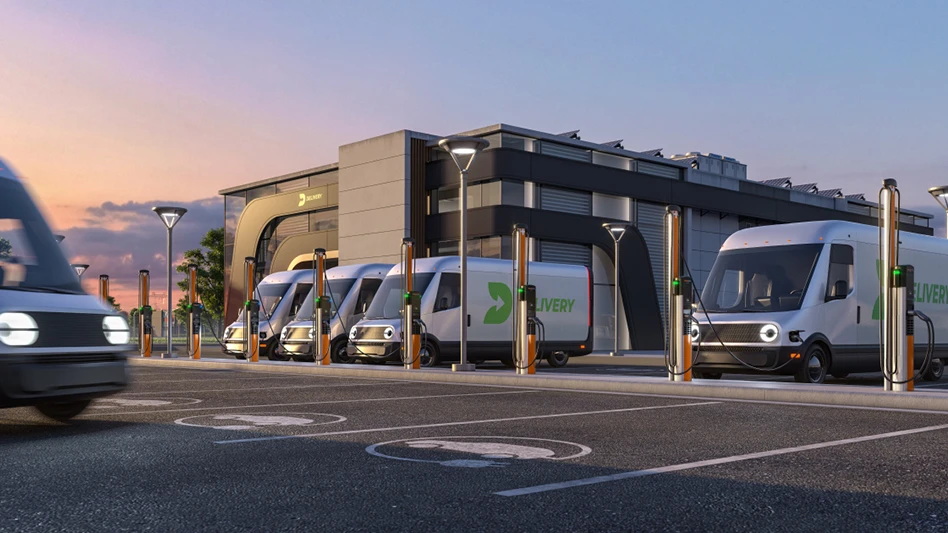
CREDIT: CHARGEPOINT

ChargePoint, a provider of networked charging solutions for electric vehicles (EVs), announced the availability of a low-cost charging solution to enable more fleets to go electric. Priced at $699, the Level 2 charger lowers the barrier to entry for fleet electrification.
ChargePoint’s suite of products enables a seamless charging experience for fleet operators and drivers, is estimated to lower total cost of ownership, and helps fleets meet their emissions reduction goals.
Flexible and affordable, ChargePoint’s CPF50 enables those who are considering electric vehicles for their fleet to affordably procure and install charging while maximizing the benefits of going electric. Fleet operators are able to optimize their total cost of ownership (TCO) by bundling ChargePoint’s fleet management software which includes real time-visibility of vehicle readiness, power usage, and station status as well as energy management tools to maximize fuel savings, control station access, and simplify complexity and station management with ease using an all-in-one solution. Multiple CPF50s can be managed from the platform, enabling power sharing via the cloud to reduce charging costs and optimize battery health, and can be configured with either J1772 or NACS connectors to meet any fleet’s needs, regardless of vehicle or connector type.
“ChargePoint has always been committed to making it easy for everyone to go electric, whether they be a driver, a business, or a fleet,” says Rick Wilmer, CEO of ChargePoint. “With our lowest cost charger for commercial vehicles we have a solution that makes charging more accessible for small businesses who want to electrify their fleet, or for large fleets that are focused on reducing total cost of ownership. We’re making the hardware more affordable, and when combined with our powerful fleet software platform, the offering can meet the charging needs of fleets of all sizes to optimize their savings.”
Fleets are going electric to maximize cost savings, whilst simultaneously meeting sustainability goals by lowering their emissions. Transportation represents the largest contributor of direct greenhouse gas (GHG) emissions in the U.S., responsible for nearly 30% of total direct GHG emissions. Broader deployment of zero emissions vehicles like commercial trucks will play a key role in meeting federal emissions reductions targets. Fleet operators need the right tools to optimize these mixed fuel fleets and prepare for a majority-electric future.
Commercial electric vehicles have long been in development, but are only now beginning to arrive in volume. New vehicles across the spectrum of light, medium, and heavy-duty trucks and vans are ramping up production in North America and Europe, enabling many fleets to finally realize the benefits of electrification.
In the realm of heavy-duty vehicles, ChargePoint expects Megawatt charging will reshape the feasibility of electrified long-haul transport. Chargers capable of delivering energy up to 20x the speed of existing DC chargers for passenger vehicles will ensure a long-haul truck can recharge in less than an hour.